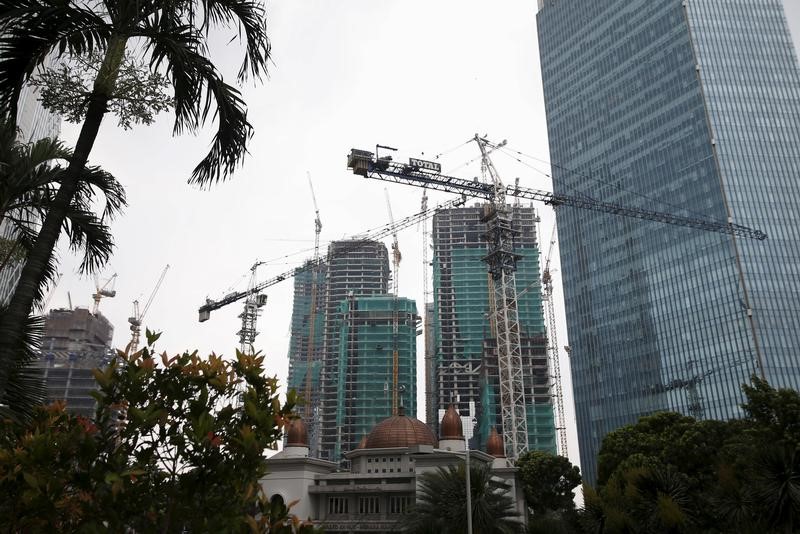By Maikel Jefriando and Nilufar Rizki
JAKARTA (Reuters) - Indonesia's economic growth slowed in the third quarter, losing momentum from the previous three months and pointing to tougher conditions for the Southeast Asian economy, which has struggled with capital outflows and weaker exports and household spending.
Gross domestic product (GDP) expanded 5.17 percent in the July-September quarter from a year earlier, the statistics bureau said on Monday, compared with a 5.15 percent expansion expected in a Reuters poll and the second quarter's 5.27 percent. The April-June quarter pace was the fastest since late 2013.
The slowdown was largely due to softer household consumption in the third quarter and a negative contribution from foreign trade.
Although the expansion was a notch faster than expected, economists warn growth may weaken further.
"We think growth will tend to be slower in the coming future due to the impact of weakening rupiah," Fakhrul Fulvian, Jakarta-based chief economist of Trimegah Securities said. He expects GDP to grow 5.13 percent in 2018 and 5 percent in 2019.
The rupiah <IDR=> is down around 9 percent this year, making it the second worst performing currency among emerging Asian markets.
Though a weaker currency has not stoked inflation, the central bank has raised interest rates five times since May to slow capital outflows in a measure analysts say could dampen domestic demand.
Capital Economics emerging Asia analyst Alex Holmes said growth will probably stay around 5 percent over the next couple of years.
"A key drag on growth over the next year is likely to be the export sector," Holmes said in a note, adding that weaker global growth and subdued commodity prices could hold back export revenues.
Weaker coal and palm oil prices have been a drag on Indonesia's exports, with the fall in the local currency unable to offset the hit to revenues from the softer commodity prices.
The export sector's contribution to GDP in the third quarter was wiped by imports. Indonesia's statistics bureau chief, Suhariyanto, blamed this on declining non-oil and gas commodity prices as well as slower growth in main trading partners like China and Singapore.
Stronger investment and government spending also failed to mitigate slowing household consumption, which accounts for more than half of Indonesia's GDP.
While a trade war between the United States and China is expected to hurt economic growth in the region, most analysts say Indonesia, which is less integrated into global production supply chains than its regional peers, will not be among the worst hit.
The trade war, however, could pressure Indonesia's economy through its financial markets.
In addition to Bank Indonesia's rate hikes, the government has delayed infrastructure projects and raised tariffs for a wide range of consumer goods, which could further hurt growth.
Barclays (LON:BARC) economist Rahul Bajoria said tighter fiscal policy next year also clouds growth outlook.
While the government's official GDP growth target this year is 5.4 percent, Finance Minister Sri Mulyani Indrawati last month told parliament 2018 growth was more likely to be 5.14 percent.
The government projects growth at 5.3 percent for next year.
Andry Asmoro, Bank Mandiri's economist, said the third quarter growth figures were unlikely to affect the central bank's monetary stance.
"The global challenge is still huge and prioritising stability over growth remains relevant in the current environment," he said.
